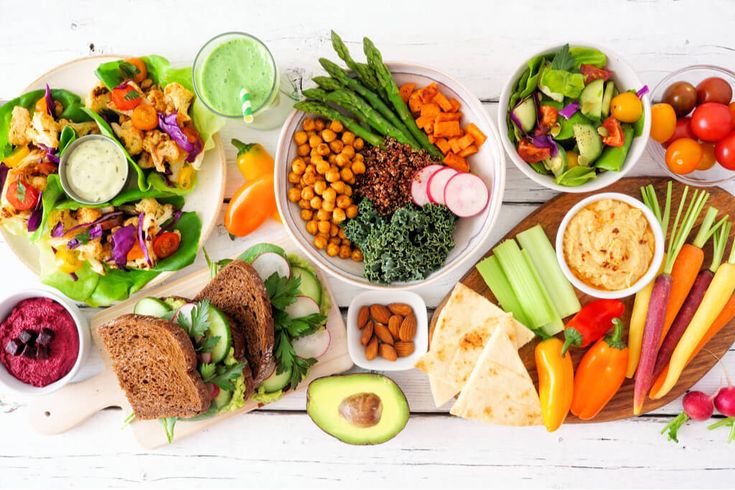
In recent years, plant-based diets have become all the rage. More and more people are choosing to skip the meat and indulge in a world of fruits, vegetables, legumes, nuts, seeds, and whole grains.
Famous faces like Jessica Chastain, Joaquin Phoenix, and multiple others have openly spoken about their meat-free lifestyles. Many online influencers have also expressed their support for plant-based diets.
Let’s look at the stats. It is currently estimated that vegans (those who steer clear of animal products) make up between 1% and 2% of the world’s population. Considering that there are approximately 8 billion people in the world, this means there are 80 to 160 million vegans around the globe! That’s a lot of homes feasting on greens every night.
This begs the question, is it a personal or religious choice? Is a plant-based diet good for your health, or is it all just a fad? So, let’s look at the highs and lows of adopting a plant-based diet. The more you know, right?
The Health Gains Of Going Green
1. Improved Heart Health
A plant-based diet might not be bad if you want to keep your heart health in check. And the numbers don’t lie (not to mention they’re pretty amazing too)! A recent study found that people with a plant-based diet are 52% less likely to develop heart disease! This could be due to the fact that many animal products are high in cholesterol and saturated fats. Plant foods, on the other hand, are packed with heart-healthy fibres and antioxidants. Now that is true food for thought.
2. Weight Management
Plant-based eaters are also 25% less likely to be overweight compared to their meat-eating peers. Since plant foods are lower in calories and packed with fibre, they help keep you fuller for longer.
3. Lower Risk Of Type 2 Diabetes
When it comes to type 2 diabetes, those who go green have a 23% lower risk of getting diabetes. Why? You guessed it! It is also due to the fiber-rich nature of plant-based foods! Simply put, fibre helps regulate blood sugar levels and improves insulin sensitivity. This is, of course, crucial for keeping diabetes at bay.
4. Better Digestive Health
Who doesn’t want that? And again, thanks to all that plant fibre goodness, your digestive system will be singing with joy. Fruits, veggies, beans, and whole grains help keep things moving. It also reduces your risk of constipation and even lowers your chances of colon cancer. In fact, a high fiber intake could also lower your risk of colorectal cancer by up to 15%!
How Herbivorous Eating Helps The Earth
A whole-food plant-based diet benefits your body. It also helps the planet. Because facts are facts. The environmental impact of animal farming is huge! It can lead to deforestation, water pollution, and plenty of greenhouse gas emissions. Let alone, livestock production is currently responsible for 14.5% of global greenhouse gases, which is more than all of the world’s cars, planes, and ships combined.
By switching to plant-based foods, you are potentially reducing your carbon footprint. A study found that if everyone in the world adopted a plant-based diet, we could cut food-related greenhouse gases by up to 70% by 2050. Not to mention, plant-based diets use far fewer natural resources (e.g. land and water).
Of course, nothing is perfect. There are a few drawbacks to consider when adopting a plant-based lifestyle.
The Cons
One of the biggest challenges is developing a nutrient deficiency. If your meals are not carefully planned, a B12, iron, calcium, vitamin D, or zinc deficiency can creep in. Last year in the UK alone, there were 191,927 hospital admissions due to iron deficiency and 3,490 for vitamin B12 shortage. Aside from that, around 40% of vegans are at risk of B12 deficiency. Therefore, nutritional supplements are highly recommended.
For so many around the world, meat is a cultural staple. Avoiding it might mean missing out on family gatherings, eating out, or travel opportunities. You might feel a bit left out if you are at a BBQ with no veggie burger in sight. Let alone explaining your plant-based choices at every dinner can get a little tiresome.
While plant-based diets are often associated with whole, nutrient-packed foods, there is also a rise in processed plant-based products that mimic meat and dairy. These processed options, like plant-based burgers or cheese, can be loaded with sodium, unhealthy fats, and artificial ingredients. A study comparing plant-based and meat-based products found that 88% of PBMP were ultra-processed, while only 52% of MBP fell into this category. That is why it is important to keep your eyes peeled, especially regarding the ingredients.
So, To Veg Or Not To Veg?
That is entirely up to you! Of course, before making a big change, discuss all the pros and cons with your doctor. You may also want to involve a nutritionist to help with meal prep and set expectations with family and friends.
Alternatively, you can consider incorporating Veggie Mondays into your routine. This means you can sacrifice meat once a week, which can make a huge difference without cutting out meat entirely.


